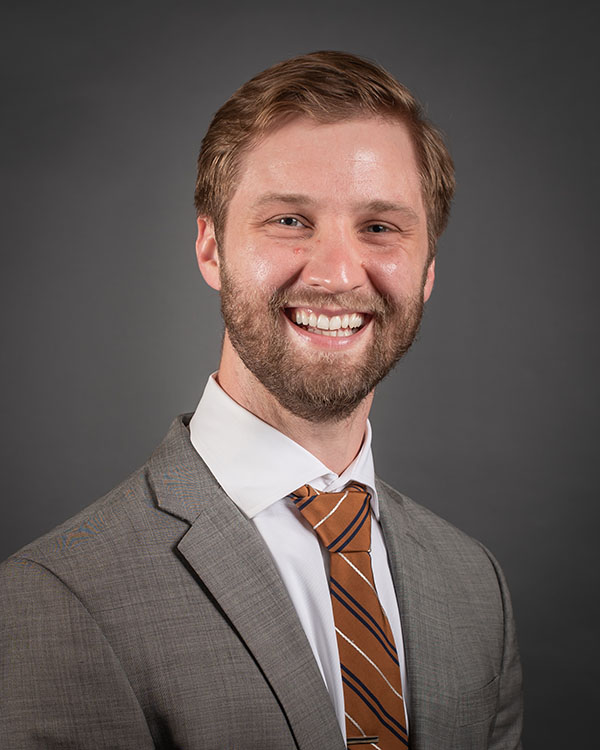This past summer, Richard Weber participated in Medical Legal Aid at the University of Kansas Health System at KU Medical Center in Kansas City through the Field Placement Program. The experience gave him the opportunity to put what he learned in his first year at the University of Kansas School of Law into action with clients on several different types of legal issues including citizenship, housing, and employment discrimination.
The KU School of Law Medical-Legal Partnership (MLP) is a collaboration between the KU School of Law and two health systems: The University of Kansas Health System at KU Medical Center in Kansas City, and LMH Health in Lawrence. Under the supervision of experienced MLP attorneys, students assist in providing free transactional legal assistance to low-income patients and their families.
“The Medical-Legal Partnership Field Placement allowed me to get out of the books and apply what I’ve learned to help real people in real situations. I was exposed to a variety of different legal areas and people, giving me a healthy dose of what I might expect upon graduation,” Weber said.
Weber shared his experience with the Change to Medical-Legal Partnership Field Placement for a Q&A.
Would you describe the type of work you did through the field placement?
What didn’t I do in this field placement? I talked to clients about legal issues they were facing, tried to suss out any potential problems or critical details, drafted petitions, proposed judgments, conducted research, and observed in court.
Are there specific skills you have developed or improved working through this experience?
You talk with potential clients every day, so whether you mean to or not, you learn how to interact with people who are going through some of the worst moments of their lives. I’ve always been decent at ‘customer service,’ but this experience sharpened my ability to not only listen and let others feel heard but not let the emotions of the situation cloud my judgment and job. There may be an urge to tell them, ‘everything will be fine’ or ‘we can help you with this’ but in reality, you need to be aware that might not be the case and learn how to navigate and set expectations.
How do you think this experience will impact the rest of your time in law school or the start of your career?
This experience has stressed what a difference two letters at the end of my name can make (J.D.). There is a great opportunity to take that title and help navigate someone through what can be a painfully unfair, biased system. I should never take for granted what I’m learning and that I get the opportunity to practice law.
What has been your favorite part of working with this field placement?
Two things: The first was the first time I ever got to say, ‘Anything you say to me is covered under attorney-client confidentiality.’ It made the last year of exams worth it in one sentence. And second, my bosses. Lindsey Collins and Brook Nasseri are the best mentors/bosses a law student could ask for. They challenge you, but at the same time create a safe space where you’re able to learn from your mistakes. Their passion for their clients and work is infectious. They’re fantastic humans and more than worth the drive from Lawrence to KC five days a week.
What would you say to law students considering enrolling in this field placement?
You owe the highest duty and responsibilities to your clients. Your supervising attorneys have your back, but these are real stakes and start to let you experience the pressures and triumphs to come in your law career.
This post is the fifth in a series highlighting hands-on learning opportunities at KU Law. Stay tuned for more student experiences in clinics, field placements and experiential learning programs.
Read previous Q&A features with:
Peyton Weatherbie, Elder Law Field Placement Program
Lauren Stahl, Transactional Law Competition
Kristen Andrews, Field Placement Program
Joan Lee, Mock Trial
— By Sarah Pickel
